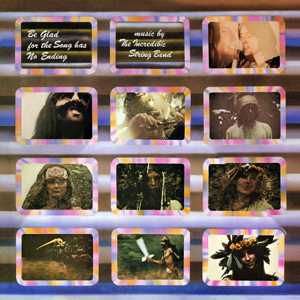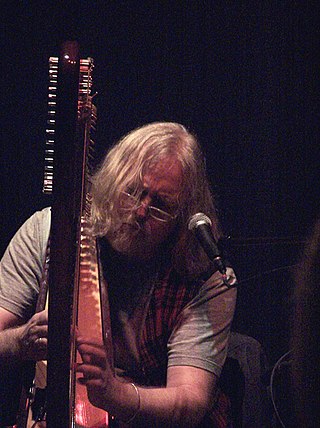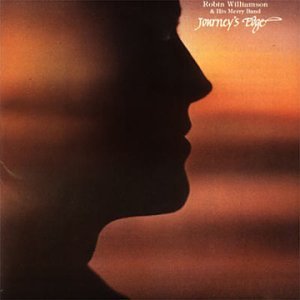
Scotland is internationally known for its traditional music, which remained vibrant throughout the 20th century and into the 21st when many traditional forms worldwide lost popularity to pop music. Despite emigration and a well-developed connection to music imported from the rest of Europe and the United States, the music of Scotland has kept many of its traditional aspects and influenced many other forms of music.

A lament or lamentation is a passionate expression of grief, often in music, poetry, or song form. The grief is most often born of regret, or mourning. Laments can also be expressed in a verbal manner in which participants lament about something that they regret or someone that they have lost, and they are usually accompanied by wailing, moaning and/or crying. Laments constitute some of the oldest forms of writing, and examples exist across human cultures.

Robert Roy MacGregor was a Scottish outlaw, who later became a folk hero.

Battlefield Band is a Scottish traditional music group. Founded in Glasgow in 1969, they have released over 30 albums and undergone many changes of lineup. As of 2010, none of the original founders remain in the band.

The Hangman's Beautiful Daughter is the third album by Scottish psychedelic folk group the Incredible String Band (ISB), and was released in March 1968 on Elektra Records. It saw the band continuing its development of the elements of psychedelic folk and enlarging on past themes, a process they had begun on their previous album, The 5000 Spirits or the Layers of the Onion. Instrumentally, it was the ISB's most complex and experimental album to date, featuring a wide array of exotic instruments. In addition, the album captured the band utilising multi-tracks and overdubbing.

Balquhidder is a small village in Perthshire located 10 miles (16 km) north-west of Callander. It is administered by the Stirling council area of Scotland and is overlooked by the dramatic mountain terrain of the 'Braes of Balquhidder', at the head of Loch Voil. Balquhidder Glen is also popular for fishing, nature watching and walking.

Be Glad for the Song Has No Ending is the eighth album by the Scottish psychedelic folk group, the Incredible String Band, featuring Mike Heron, Robin Williamson, Licorice McKechnie and Rose Simpson. It is the soundtrack for a film of the same name, and was released on Island Records in March 1971, failing to chart in either the UK or US. It would be the first album from the band on the Island label, and the last to feature Joe Boyd as the producer.

The Celtic harp is a triangular frame harp traditional to the Celtic nations of northwest Europe. It is known as cláirseach in Irish, clàrsach in Scottish Gaelic, telenn in Breton and telyn in Welsh. In Ireland and Scotland, it was a wire-strung instrument requiring great skill and long practice to play, and was associated with the Gaelic ruling class. It appears on Irish coins, Guinness products, and the coat of arms of the Republic of Ireland, Montserrat, Canada and the United Kingdom.

Robin Duncan Harry Williamson is a Scottish multi-instrumentalist, singer, songwriter, and storyteller who was a founding member of The Incredible String Band.

Malinky is a Scottish folk band specialising in Scots song, formed in autumn 1998.

Robert Ogilvie Noakes was a Scottish singer-songwriter. He was at the forefront of Scottish folk music for over 50 years and recorded over 19 studio albums. He toured folk clubs and often performed at the Glasgow music festival Celtic Connections.
Robin Hall was a Scottish folksinger, best known as half of a singing duo with Jimmie Macgregor. Hall was a direct descendant of the famous Scottish folk hero and outlaw Rob Roy MacGregor as well as of the explorer Mungo Park.
Jimmie Macgregor is a Scottish folksinger and broadcaster, best known as half of a singing duo with Robin Hall.

A Glint at the Kindling is a folk album released in 1979 by Robin Williamson and his Merry Band.

Journey's Edge is the second solo album by Scottish folk artist Robin Williamson and his Merry Band. The work was released in 1977, and re-released in 2008 by Fledg'ling Records with ten bonus tracks.

Legacy of the Scottish Harpers Volume Two is a folk album released in 1986 by Robin Williamson.
Events from the year 1936 in Scotland.
Cathal McConnell is an Irish musician and singer best known as the mainstay of traditional band The Boys of the Lough, of which he was a founder member. His main instruments are the Irish flute and the tin whistle.

Let's Hear It for the Dogs is the tenth studio album from Scottish folk rock duo The Proclaimers, released in 2015 on the label Cooking Vinyl. The album's release was promoted by extensive touring in the United Kingdom, Ireland, Canada, United States, Australia and New Zealand.















